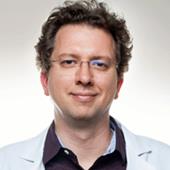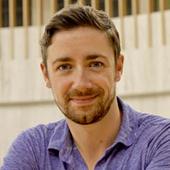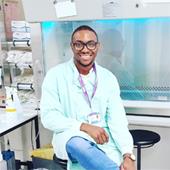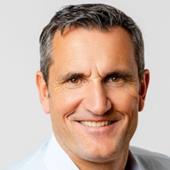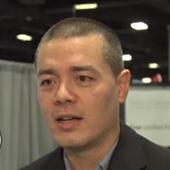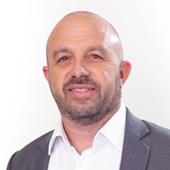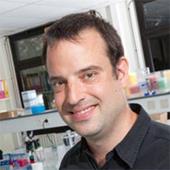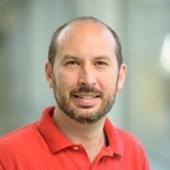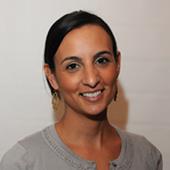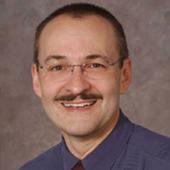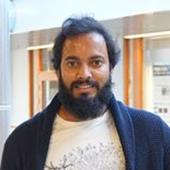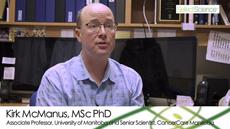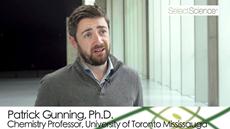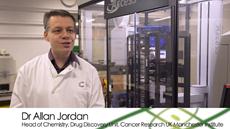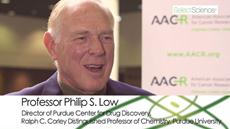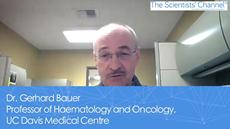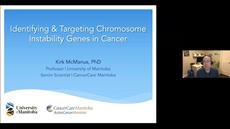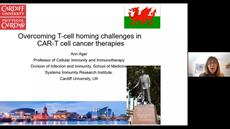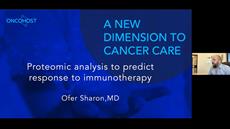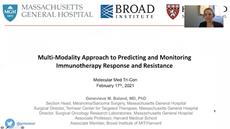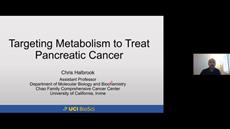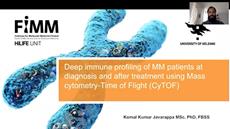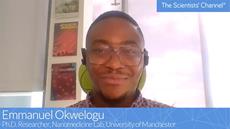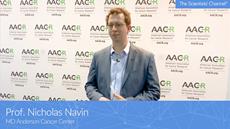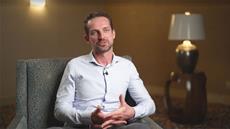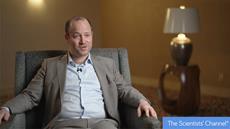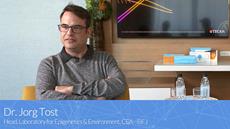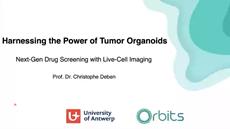- Partners for Progress in Oncology
- Accelerating Science Podcast
- Scientists' Choice Award® winners
- Blood testing
- Women in science
- SLAS
- Cell preparation, incubation & storage
- Microbiology & infectious disease
- Food safety & testing
- Cell culture
- Cancer research
- Cannabis testing
- Clinical laboratory diagnostics
- Mass spectrometry
-
More
Professor David Tuveson
Cold Spring Harbor Laboratory Cancer CenterAdvances in Pancreatic Cancer Pathways and Treatments
8 Aug 2022
In this video, David Tuveson, President of the American Association for Cancer Research, and Professor and Director of the Cancer Center at Cold Spring Harbor Laboratory, describes his work on pancreatic cancer. Tuveson’s lab runs several projects investigating the biology of cancer of the pancreas, specifically looking at inflammation, metabolism, the extracellular matrix, and the mutated Ras protein found in pancreatic cancer cells. The work examines the molecular pathways implicated in pancreatic cancer and its progression, and finds ways to target these pathways as a treatment for pancreatic cancer. Tuveson also discusses the organoids for pancreatic cancer his lab has developed that are used to screen novel medicines and the antibodies that are being developed as tools for early pancreatic cancer detection. Lastly, Tuveson explores novel technologies and hints at the bright future he sees for cancer research.
Hello, I'm David Tuveson. I'm the President of the American Association for Cancer Research. I'm also a professor and the Director of the Cancer Center at Cold Spring Harbor Laboratory which is in Long Island, New York. I work in the field of pancreas cancer. And so, I perform experiments in my laboratories that inform clinicians and then treatment of patients. And I've done that for the last 20 years. This past year, though, I've been able to help with the AACR. So my laboratory works on the whole spectrum of the biology of pancreas cancer. And we also spend time on trying to develop new therapies and new ways to detect pancreas cancer. And so, some of the science topics in the biology of pancreas cancer is we work on inflammation. That's something that seems to precede pancreas cancer. And we have been looking at pathways that promote inflammation and blocking them as ways to prevent pancreas cancer. We also work on something called the stroma in pancreas cancer. The stroma is the oatmeal that surrounds the raisins. In the tumor, raisins are the cancer cells. The oatmeal and oatmeal cookie is around it. So that gooey material is proteins made called matrix. And this material, the matrix, is made by a cell called a fibroblast. We study the fibroblast because those fibroblasts that make the oatmeal also make other things, spices as it were, that make the cancer bad, promote the proliferation of cancer cells, promote their spread, and promote diseases in patients like cachexia, where they get thin. So, we study that too. And the third thing we study that's a science topic is metabolism. So, metabolism is your carbon footprint, kind of what you eat is what you are. Pancreas cancer cells eat weird things. They eat proteins to derive amino acids. No other cancer does that. So, we realized that due to the work of another scientist, and we went on to look for other metabolic pathways. We realized that pancreas cancer cells actually try to get rid of a compound called cholesterol. You've all heard of cholesterol. You think of it as something that you worry about for heart disease. Pancreas cancer cells have the pathway of cholesterol turned on at a high level because it feeds other pathways in the cell, such as lipids, to get proteins to go to the plasma membrane. And that's really important because that's a new drug target. Another thing we study in pancreas cancer is the ability of the cell to shape change between being a round cell to a flat cell, to be a star, to be an oblong, sort of, banana-looking thing. The ability of a cancer cell to change its shape or its coats is what makes it hard to treat. And we have found pathways that promote this shifting of the differentiation state as new drug targets. Finally, there's a topic in pancreas cancer which is called ras, R-A-S. This is a bad protein in pancreas cancer cells. It's mutated. Drugs are now being developed that will target this protein, and therefore, we wanted to learn, "Well, how does the protein work?" And we found a brand new pathway recently, which we think is very important in the ras-driven pancreas cancer cell. And that's a new therapeutic target for us. Now, all that cool science I just mentioned only matters if we can turn it into medicines that we can use to make the cells go away. And we've been able to develop models of pancreas cancer called organoids. And we use the organoids to screen for medicines that will treat cancer better than it has in the past. We have a clinical trial testing that right now. And then finally, that last topic about early detection, pretty tough one, but we've been lucky lately. We've been able to develop antibodies that see pancreas cancer in its native state, in the earliest form of pancreas cancer. And these antibodies, you know, they look pretty good. And so, now we're developing them as tools that we could turn into probes for individual patients to ask, "Do you have a small cancer in your body?" This is some of the work that my laboratory does. There are some terrific new approaches to looking into the tumor, where you can either have a slice of the tumor on a glass slide and look under a microscope and see all the various cell types in their exact location that they are in the tumor. And then you can ask questions about, "Is this cell next to that one?" Because you know that one cell type is, for example, the cancer cell, another cell type is, for example, an immune cell. And you're wondering, "Why isn't that immune cell clobbering this cancer cell?" You actually can start to ask those questions because of high-resolution, high-content microscopy. And you can use antibodies to do this, which is a traditional method, or you can look at gene expression, mRNA expression, and that's an area called spatial transcript omics, totally new, disruptive transformative technology. Amazing. It's a little bit slow, a little bit costly but amazing information comes from such studies. And that's a totally enabler that many of us are using now. Well, the future of cancer research is bright because we know so much right now. We just got to get back to work. And this meeting is a reminder of how many exciting ideas that we have that we really just need the time now to spend on them.
Share this video
Related Scientists
-
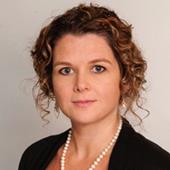
-
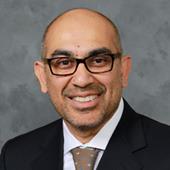
-
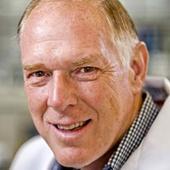
-
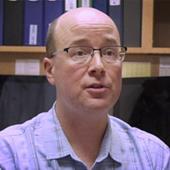 Cancer ResearchDr. Kirk McManus Department of Biochemistry and Medical Genetics, University of Manitoba
Cancer ResearchDr. Kirk McManus Department of Biochemistry and Medical Genetics, University of Manitoba
Related Content
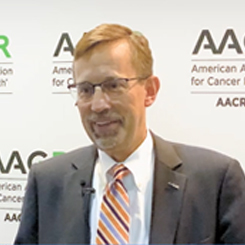
Professor David Tuveson
Cold Spring Harbor Laboratory Cancer Center Cold Spring Harbor...Biography
David Tuveson M.D., Ph.D., Professor, Director, Cold Spring Harbor Laboratory Cancer Center MoreProfessor David Tuveson
Cold Spring Harbor Laboratory Cancer Center
Dr. Tuveson obtained a bachelor’s degree in chemistry at M.I.T. and medical and doctoral degrees at The Johns Hopkins University. He was a medical resident at Brigham and Women’s Hospital and a medical oncology fellow at Dana-Farber/Partners Cancer Care. Subsequently, he moved to the University of Cambridge, UK, to develop preclinical and clinical therapeutic strategies for pancreatic cancer. In 2012, Tuveson was recruited back to the US to direct the Cancer Therapeutics Initiative within Cold Spring Harbor Laboratory’s Cancer Center. His honors include the Rita Allen Foundation Scholar Award, the Waldenström Award (2014), the Hamdan Award (2016), and election to the American Society of Clinical Investigation (2016). Tuveson is known for developing some of the first mouse models of pancreatic cancer and more recently, for his work developing pancreatic cancer organoids.

